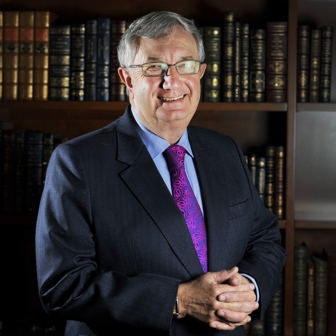On Loyalty and Loyalties: The Contours of a Problematic Virtue
John Kleinig | Oxford University Press | $41.95
Mateship is supposed to be a defining Australian value – so much so that John Howard wanted to include a reference to it in the preamble of the Constitution. Intrinsic to mateship is loyalty, which means that mates can rely on each other in adversity and danger. But mateship has a dark side: not only because of its gender bias but also because of the wrongs it sometimes encourages. An inquiry into corruption in Victoria’s education department, for instance, recently heard allegations that a group of mates helped each other commit fraud, covered up for each other and punished outsiders who dared to raise questions. Whatever moral qualms these friends might have experienced were overridden by their loyalty to each other.
What should we make of a character trait that motivates ennobling acts of self-sacrifice but also pernicious deeds? This is the central question John Kleinig asks in this investigation of loyalty and loyalties. His search for an answer is motivated not only by general philosophical curiosity but also by a career of teaching and researching police ethics. Police demonstrate the good side of loyalty when they take risks to back each other up in dangerous situations, but the bad side takes over when they lie or hide evidence to protect each other.
Despite its drawbacks, Kleinig defends loyalty, not only as a trait with its good points but also as an important moral virtue. Loyalty, he says, is the disposition to deny oneself for the sake of relationships you value and associations you identify with – to stand by them, to look out for their interests and not to betray them. It is not always a moral matter. If you abandon your football club after a season of lost games, you might be accused of disloyalty but you have done nothing morally wrong. But in many relationships – friendships, for example – loyalty is a moral requirement.
Being loyal is not a contractual obligation, nor merely a matter of doing one’s share in a relationship. Loyal people are prepared to make sacrifices for their associates without counting the costs to themselves. They care about the objects of their loyalty and regard maintaining their relationship as a matter of personal integrity.
Kleinig distinguishes loyalty from devotion to a cause or an ideal. Loyalty takes as its object other people (friends, family, workmates), an association (corporations, churches, professions, political parties, nations, states), rulers or a supreme being. It is also different from solidarity: those who act in solidarity do not necessarily value their relations with each other; instead, their focus is on achieving a common goal. But this distinction can be hard to draw. People who value their relationship may do so partly because it achieves an important aim, and those who act in solidarity must be able to depend on each other. Police who maintain solidarity with each other are also exhibiting loyalty.
Some critics of loyalty worry about its effect on moral objectivity. Loyalty can lead people astray because it blinds them to the faults of the objects of their loyalty. If you care about your mates then you are disposed to regard them in a positive light, which makes it easy to overlook or downplay the bad things they do. If your loyalty encourages you to believe that your first duty is to look after their interests, then you are likely to ignore other moral considerations. Loyalty, say its critics, can prevent us from being morally rational and autonomous.
Other critics complain about the partiality that is inherent to loyalty. You favour some people just because of their connection with you, and this puts loyalty in conflict with any moral position that requires us to treat all individuals with equal consideration. In his recent book, The Most Good You Can Do, Peter Singer argues that our overriding moral duty is to maximise the amount of good we do. We can do more good by helping people in poor countries than by providing benefits to members of our family, to friends or to people of our nation. Loyalty hinders morality because it gets in the way of doing the most good.
Kleinig defends loyalty as a virtue by arguing that it plays an indispensible role in our lives. We are social beings – not just because we depend on others for our existence but also because our sense of self depends on relations with others. By identifying with other people and by regarding our relations with them as valuable we live richer lives than we would live as socially isolated individuals. We are able to flourish and realise ourselves more fully. Loyalty, he says, is an executive virtue that enables us to maintain valuable relationships by curbing our self-seeking impulses. It requires us to make sacrifices. Life without loyalties would be lonely, unfulfilling, narrow and mean.
Friendship provides one of Kleinig’s best cases for regarding loyalty as a virtue. More than almost any other social relationship, friendship is mutually enriching, and it is this, according to Kleinig, that makes it a peculiarly and especially important site for personal flourishing. Friends are supposed to care about each other and act for each other’s sake. They are supposed to respect and appreciate each other’s point of view. A friend is not supposed to undermine or betray.
Loyalty among family members is not difficult to defend either – at least in cases where families are not dysfunctional. The close, personal relations of family life give its members an experience of intimacy, loving care and concern that is essential to flourishing and self-realisation. A history of intimacy and love forges bonds that contribute in an obvious way to an individual’s identity and sense of worth.
Friendships and family are natural breeding grounds for a loyalty that generates moral commitments. These relationships play such a central role in a good life that any moral philosophy that tries to tell us we ought not to be loyal to family and friends reduces itself to absurdity. Even Singer admits to an irresistible propensity to favour the members of his own family. But these relations, good as they often are, have their moral hazards. People who care deeply for friends and family members are exploitable. The desire to help them can subvert processes that are supposed to be impartial and fair to everyone. Kleinig thinks that these hazards can be lessened, if not entirely avoided, by putting limitations on loyalty. People should choose their friends carefully. The study of loyalty, he says, is a study of the ties that should bind.
People should also put limits on what they are prepared to do for each other. They should never take leave of their moral judgement. A person should be ready to visit her friend in hospital or to help her move house, but she should draw a line at helping her to dispose of a body. Parents should make sacrifices to ensure that their children get a good start in life but they should not bribe a judge for their sake. No one can be blamed for having a special regard for their friends and family members, but it is not wrong for Singer to insist that we ought to do less for friends and family and more for impoverished strangers.
The demands of loyalty should always be open to criticism. According to Kleinig, this applies even to a person’s relation to God. As a test of loyalty, the God of the Old Testament asked Abraham to sacrifice his only son, Isaac. Kleinig thinks that Abraham was justified in complying with God’s demand – not because God’s commands should be unconditionally obeyed but because he had good reason to believe that God would not allow Isaac to die. Because God had always shown loyalty to Abraham and his family, Abraham was justified in trusting in the goodness of God. Whether this reasoning exonerates either of them, though, is open to doubt.
Kleinig admits that recognising loyalty as a virtue makes moral life complicated. We cannot satisfy the demands of loyalty by following general moral rules or subscribing to Singer’s utilitarianism. Life and literature is full of examples of people who face a conflict of loyalties or a conflict between their duties to friends and family and more general moral requirements. Kleinig does not think that a moral philosopher can tell us how to resolve these moral dilemmas. Ultimately, we must fall back on our own good judgement.
Loyalty becomes more open to question when it motivates behaviour in organisations or when it is manifested as nationalism or patriotism. People do often identify with their corporation, church, political party, nation or state and Kleinig accepts that these identifications, and the loyalty they demand, are often legitimate. Indeed he thinks that loyalty to a state – providing it is liberal and democratic – is a moral requirement. But this argument seems problematic. It’s true that a person without friends is not likely to live a good life, and family relations play an important role in human existence. But people can surely flourish without identifying with their company, their church, their nation or their state. Moreover, criticisms of loyalty are more cogent when applied to relationships with corporations, states or other powerful organisations, where the moral hazards that attend loyalty are more likely to lead to seriously bad consequences.
We don’t have to look very far to find manifestations of the bad consequences of organisational loyalty. One reason why child molesters in the Catholic Church were able to get away with their crimes is because their deeds were ignored or kept secret by superiors who were acting out of loyalty to the church or to fellow priests. Loyalty encouraged them not only to cover up wrongdoing but also to treat the demands of victims as threats to the reputation or finances of the church. Whistleblowers are often reviled and punished because their superiors, and even their fellow workers, regard their revelations, however much in the public interest, as a betrayal of the loyalty that employees are supposed to owe to their corporation.
Loyalty in organisational contexts also threatens to get in the way of the rational judgements that ought to govern our relations with organisations. Unlike humans, organisations are not valuable in their own right. They exist to serve a function – a corporation to make a profit for its shareholders or provide a useful service, churches to provide spiritual sustenance as well as other goods, states to protect the lives, freedoms and wellbeing of citizens. Whether these organisations are good or bad depends on how well they fulfil these functions while satisfying legal and moral requirements. Members must critically assess the behaviour of their organisations and reform them if necessary. But if people identify with their organisation and regard their relationship to it as good in itself then they are not likely to be critical of the way it operates or to pay much attention to the complaints of outsiders. Loyalty seems all too likely to get in the way of a necessary critical perspective.
Kleinig doesn’t think that loyalty is incompatible with a critical stance. Good friends should be prepared to admonish each other for bad behaviour, he says, and the patriot should take to heart the words of Carl Schurz: “Our country, right or wrong: when right to be kept right; when wrong to be put right.” Kleinig traces the historical development of a “loyal opposition” to ensure that governments always face criticism.
But the fact remains that loyalty, as Kleinig has so far presented it, works against the critical attitude. If people identify with their association, if they value their relationship with it for its own sake, if the wellbeing of the organisation is bound up with their personal integrity, then members will not be inclined to be critical. They will avoid searching out reasons for criticism and become defensive or hostile when others do. This reaction is especially likely when the group seems to be under threat. Kleinig notes that after the terrorist attacks of 9/11, Americans who criticised their nation for its policies or failed to demonstrate patriotism in an approved way risked accusations of disloyalty.
Does this mean that loyalty outside the sphere of friendship and family is a bad thing? If loyalty to organisations takes the same form as loyalty to friends and family then that conclusion is hard to avoid. But when Kleinig argues that loyalty to organisations can be a good thing, his justification takes a different path from the one he follows to justify loyalty in friendship and family relations, and as a result the concept of loyalty takes a new form – one that he doesn’t sufficiently distinguish from loyalty in the context of personal relationships.
His justification for organisational loyalties begins by stressing the social usefulness of some organisations. A well-functioning state, for instance, gives indispensible benefits to citizens. It protects their rights, ensures their wellbeing and gives them means for pursuing their individual goals. But a state can only reliably provide such benefits if its members are committed to sustaining it, even when doing so requires effort and self-sacrifice. The importance of sustaining a valuable organisation like a state is particularly obvious when it is supposed to provide benefits for future as well as present generations.
States are supposed to serve their citizens. Sometimes they subscribe to ideals such as equality, democracy, freedom and human rights. But if sharing ideals or common purposes is all that holds people together, then they are all too likely to be driven apart by disagreements over the interpretation of these ideals or strategies for implementing them. A complex organisation will only be sustained by members who are committed not only to what their group stands for but also to their particular project of achieving it. Their solidarity has to take the form of a commitment to stick by each other and continue to work together through bad times and good, to settle their disagreements and to find ways of living together despite differences. Maintaining a state requires loyalty and Kleinig thinks it can reasonably be demanded from all citizens.
Kleinig’s failure to clearly distinguish loyalty in friendships and family relations from the kind of loyalty that should sustain organisations is a major flaw in his account. Organisational loyalty need not take the form of identification with the group or its members. It could be motivated by cold-blooded reasoning, though it would be unusual for people who share the project of maintaining or building an organisation to fail to develop positive attitudes towards each other. Unlike the loyalty of friendship, organisational loyalty need not, and should not, require participants to value their relationship for its own sake. This kind of loyalty is conditional on the goals of an organisation being achieved or at least achievable; it has to be critical.
Recognising differences between loyalties has implications for where loyalty ought to be invested. Some organisations are unworthy of loyalty because they have evil purposes. Some are not proper objects of loyalty because it is better for their purposes to be served by other motivations. Despite Kleinig’s defence of loyalty to organisations, it does not seem to me that they are suitable objects of loyalty – at least not those that are run for profit. Those who work for a corporation should do their job and not betray its legitimate secrets. In return for an appropriate reward they should dedicate themselves to working for the good of the organisation.
Perhaps employees also have a duty not to undermine the reputation of their corporation without good reason. But they do not have a duty of loyalty. They should not be expected to make sacrifices for the company beyond what they are paid to perform. They should not be expected to stick with the company if they can be better rewarded elsewhere or if they think that the corporation’s objectives can be better fulfilled by another group. Loyalty in the context of a corporation – particularly a business corporation – is a recipe for exploitation, for subversion of the public interest and for silencing those who have a legitimate complaint.
Loyalty, says Kleinig, has a Janus face. The pleasing side of its countenance smiles on deeds that enhance individual existence and maintain social wellbeing. The ugly face reveals bad deeds done for associates and misplaced loyalty to improper objects. Organisational loyalties, even when justified, compound the moral hazards of loyalty by requiring a balancing act between faithfulness to the purposes an organisation is supposed to achieve and loyalty to the associates who work together to maintain it. If its members become disillusioned with progress or find themselves in disagreement, too much of an emphasis on ideals can destroy an organisation. And too much loyalty to associates can cause members to lose contact with moral standards that the organisation ought to fulfil.
Dealing with this problem is a perennial task for any social order. Its solution cannot be left to the good sense that Kleinig recommends for putting limits on personal loyalties. It requires institutional remedies. Kleinig discusses how the existence of a “loyal opposition” ensures that criticism has a place in politics. But experience shows that the rituals of oppositional politics are not always a sufficient check on uncritical loyalty.
Barbara Ehrenreich thinks that dissent, rebellion and “all-round hell-raising” are the true duty of patriots. The same could be said about any institutional loyalty – whether to a church, a political party, a university or a trade union. The difficulty is to make sure that loyal hell-raisers have a respected place in their organisation. •




